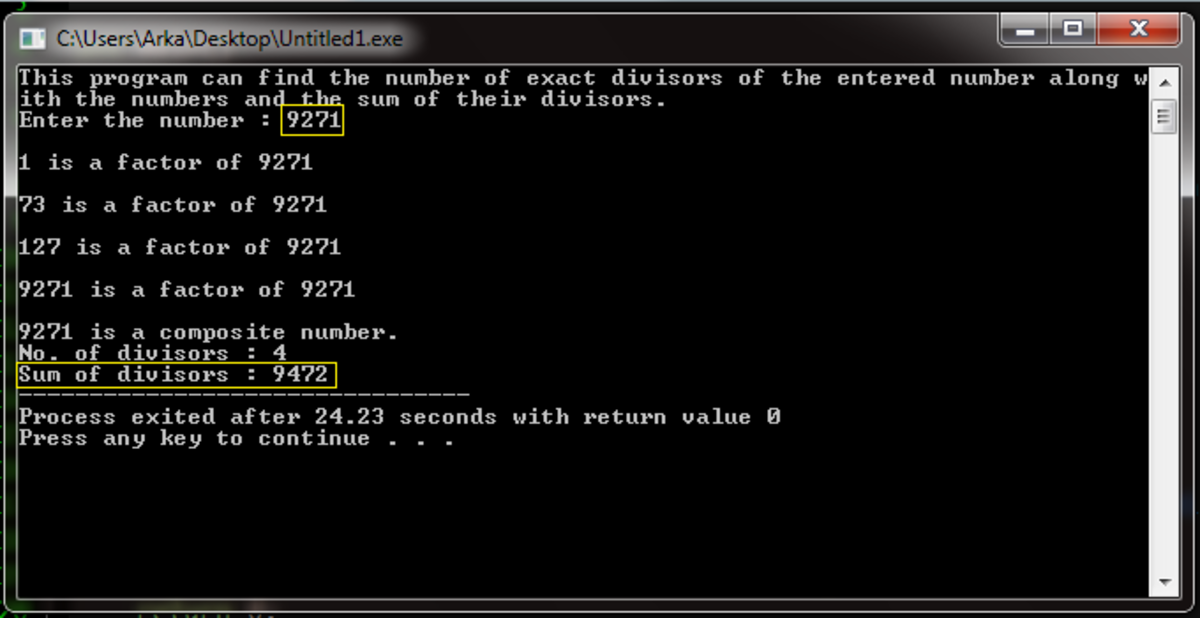Isn't that the reverse of the Hardy-Ramanujan number?
Find the sum of positive divisors of 9271 inclusive of 1 and itself.
The answer is 9472.
This section requires Javascript.
You are seeing this because something didn't load right. We suggest you, (a) try
refreshing the page, (b) enabling javascript if it is disabled on your browser and,
finally, (c)
loading the
non-javascript version of this page
. We're sorry about the hassle.
2 solutions
As a criticism of my own solution, note that we need to somehow find the prime divisor 73 for it to work. This is still reasonably small enough that we might find it by hand, but in general, one would probably use a sieve method or some other complex algorithm on a computer to factorize the number.
Log in to reply
Valid enough.
I know one such theorem for finding the factors of any number. There you go:
Suppose the number is n . Find the largest natural number k such that n ⩽ k 2 . The theorem states that the prime factors of n lie among the primes between 1 and k . Pick primes from here and check if they divide that number or not. But applying this to very large numbers is obviously not useful as it will become uncomfortably lengthy.
@Calvin Lin , any better theorem? (saviour, rather).
Simply, I made a program using C++ for finding the sum of the divisors along with the number of divisors of the given number:
1 2 3 4 5 6 7 8 9 10 11 12 13 14 15 16 17 18 19 20 21 |
|

Which upon execution, returned 9 4 7 2 as the answer. Any number theory or other mathematical solution is heartily welcome.
PS: I'm not so good at Number Theory :P
Factor the number into primes as 9 2 7 1 = 7 3 ⋅ 1 2 7
Then the sum of its divisors is ( 1 + 7 3 ) ( 1 + 1 2 7 ) = ( 7 4 ) ( 1 2 8 ) = 9 4 7 2